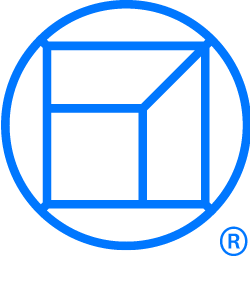Almost exactly a year ago, Facebook announced that they would be removing their 28-day attribution window. After initially postponing the update, it eventually took effect and changed to a 7-day click, 1-day view attribution. Apple’s privacy updates further affected Facebook advertising, so Facebook once again changed their default attribution window to just be a 7-day view, removing the 1-day click.
Now, however, Facebook is reinstating the 7-day click, 1-day view attribution window as the default in Ads Manager. Many advertisers are left wondering what this means for their brand and their bottom line, especially with Q4 upon us and the holiday season coming quickly.
We chatted with Tayler Carpenter, our Director of Advertising, to get some more insight into this update and what it means for you.
Your Immediate Questions: Answered
Will I Notice A Difference In Results?
You will notice a change if you haven't been including 1-day view attribution in your reporting. The benefit of 1-day view is that if someone scrolls by your ad and doesn't click, but they convert within 24 hours, that will still count towards your conversions. Anything more than 1-day view is tricky and can overreport in platform.
Do I Need to Do Anything Right Now?
Nope — the attribution will automatically change to this new window. Unless you’d like to change the window, which you can still do. This update only affects the default attribution window.
Is This a Good Change?
We here at Blue Wheel think this change is good — we’ve always followed a 7-day click, 1-day view attribution window, even before Facebook made these changes. We find that it’s the most accurate time frame to attribute sales, giving us more insight in our reporting to clients.
“This is how Blue Wheel has been measuring campaign performance for a few years,” says Carpenter. “But for those advertisers that are seeing lower conversions coming in post-iOS14, adding in the 1-day view will help boost conversions and give you a better look into how your campaigns are performing. Plus, this allows your conversion campaigns to get one step closer to the infamous ‘50 conversion actions’ rule in platform.”
What This Means for the Future
At the end of the day, this is indicative of a larger trend in the increased focus on privacy and tracking. You can expect to see more changes like this taking place gradually over the next year or so across multiple platforms.
And, combined with the recent Facebook and Instagram outage, this is just another reminder that channel diversification is critically important for your business. Branching out to advertise on other platforms like TikTok, Snapchat, and Pinterest will make your brand successful in the long run.
Carpenter notes that this update also makes sense when diversifying your channels. “This update gives each platform a level playing field with conversion reporting. Pinterest and Snapchat also can report on 7-day click, 1-day view, so you can compare how they work compared to Facebook and Instagram more easily.”
Additionally, owning your customers via your email and SMS list is another way to offset these changes. You can provide updates to interested users, regardless of which platforms are down on which day. Building a solid email list is still a must-have part of your overarching marketing efforts.
Lisa Wendland, Director of Marketing at Blue Wheel, affirms the importance of email marketing in conjunction with your Facebook advertising. “When Facebook visitors click through to your brand website, be sure to have an email sign-up readily available so you can keep the conversion conversation going.”
By ensuring all of your marketing efforts are connected, you can create a seamless experience for your contacts to become customers — regardless of the current Facebook attribution model.
Facebook updates still got you confused? Let the Blue Wheel advertising team handle it for you. Get in touch today!








.png)
.png)
